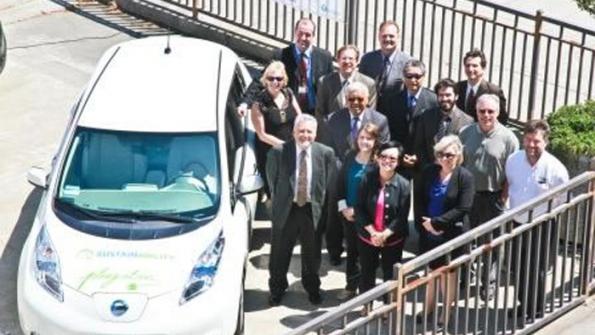Cooperative buying lowers green product prices
Alameda County, Calif., has been at the forefront of government green purchasing initiatives. GPN reached out to Caroline Judy, Acting Director of the county’s General Services Agency (GSA) who has led several efforts to lower prices of green products through cooperative purchasing. 
The agency delivers a host of services, including building maintenance, property acquisition, architectural, engineering, construction, contracting and procurement.
“Public agencies have an increasing need for credible sustainability standards that enable them to identify and compare products and services that help meet sustainability goals.”
Alameda County, says Judy, has participated in developing comprehensive sustainability standards that cover priority products and services. “We know that meaningful standards are critical to driving market change. Our involvement helps to set a high bar, increase availability of products in the marketplace and ensure that the standards include products and services that are operationally feasible and competitively priced.”
Judy tells GPN that the county Board of Supervisors adopted an Environmentally Preferable Purchasing Resolution and Policy in 2011 that identifies efficiency as a top priority when considering sustainable purchasing opportunities. The policy has translated into concrete results on copier paper purchases, to the point that the county reduced copier paper use by 20 percent and saved $120,000 annually. This paper project was awarded top honors by the Sustainable Purchasing Leadership Council in 2015.
Other public agencies can take advantage of Alameda County’s copier paper contract through cooperative buys. The contract offers competitive volume pricing for 100-percent post-consumer recycled-content copier paper.
Judy tells GPN that the county uses cooperative purchasing strategies to advance adoption of innovative technologies, such as electric vehicles.
Alameda County is the lead agency for the Local Government Electric Vehicle Fleet Demonstration Project, a federally funded collaborative purchasing project to demonstrate the utilization of all-electric vehicles (EV) in municipal fleets.
Through the EV contract, says Judy, “the county enabled nine other jurisdictions to access federal grant funds and competitive pricing to realize approximately $349,000 in savings for electric vehicles {below MSRP}.”
The county is putting its professional services acquisitions under the microscope. The reason: An analysis of the county’s procurement contracts showed that construction and professional services (such as printers, service sector vendors, and community service providers) are top producers of greenhouse gas (GHG) emissions. The analysis compared overall greenhouse gas emissions with the county’s purchasing dollar allocation.
In the future, Judy says, “We’ll be looking for ways to work with our construction and professional services vendors to reduce their GHG emissions because these categories represent the highest emissions in our supply chain.”
Judy also sees a growing trend in addressing sustainability within state and national cooperative purchasing tools. “The most innovative sustainability contracts require all products and services offered on contract to meet environmental performance criteria,” says Judy.
Michael Keating is Senior Editor at Government Product News, an American City & County sister brand.
_____________
To get connected and stay up-to-date with similar content from American City & County:
Like us on Facebook
Follow us on Twitter
Watch us on Youtube




















